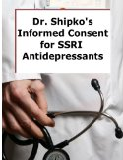
Diplomate of the American Board of Psychiatry and Neurology

Diplomate of the American Board of Psychiatry and
Neurology
| about: | I am in private practice in psychiatry in Pasadena, CA.
My services include consultationsConsultation services include a basic one hour consultation or a more comprehensive two hour consultation. Performing a good examination is critical to establishing the best treatment options. This includes record review, literature review and discussion with collateral sources as needed. Because of my background as a general practice physician, I have a good understanding of the interplay between physical and mental conditions./second opinions,
psychotherapy,Psychotherapy is of major importance, and I do my own therapy. It is my observation that most emotional problems are situational, often relating to relationship problems, work or coping with difficult other life circumstances. These circumstances are superimposed on individual temperaments and memories. Psychotherapy is the first line of treatment for these sorts of problems. I carefully consider the risks and benefits of prescribing medications to treat emotional problems. While medications can be enormously helpful, at times, they are not always needed for common problems and long term outcome for anxiety and mood disorders is generally better if medication use is minimized. The mind has an inherent flexibility and capacity for change that is best facilitated through an empathic psychotherapy. I am experienced in short and long term psychoanalytic dynamic therapy, existential therapy, cognitive therapy, hypnosis, meditation and guided imagery.
medication management Consultations, second opinions and ongoing management. My approach to medication is generally conservative. I have special interest in panic disorders, supplements and side effects from certain antidepressants. and forensic servicesMy forensic services include independent medical evaluations, peer and record reviews, and expert testimony regarding psychiatric injury, malpractice, and involuntary intoxication..
I have a broad based general, adult practice and my subspecialty interests include anxiety/panic disorders, and the side effects/withdrawal effects of antidepressants and benzodiazepines. The most common reason patients present to my office is anxiety. I frequently see people in consultation who are interested in stopping psychiatric medications or people who are having problems since stopping medications. The decision to start taking a psychiatric medication is one that needs to be made carefully as all of the drugs have side effects and the potential for dependency. Similarly the decision to stop taking a medication needs to be made carefully, as tapering schedules and withdrawal syndromes from psychiatric medications have been inadequately studied. All too often medications are prescribed after brief visits with little warning to the patient about potential adverse effects. Because psychiatrists may have little or no actual experience with psychotherapy, many are unable to make a determination whether a patient might do better with therapy alone. Frequently psychiatrists assume that the patient is expecting a drug treatment. Patients are often unaware that the psychiatrist has made no consideration about whether a condition would do best without any drug. With over 30 years experience as a psychiatrist and an extensive background in the psychotherapies, I am well suited to help a distressed individual to regain their emotional well being. I have treated thousands of patients with panic disorder. I have also
published original research relating panic disorder to abnormalities of bile flow that result in reflux-based sinusitis and heartburn. I have used this and other research to formulate a more precise conceptualization of panic disorder and practical treatment approaches. Above all, my approach to patients involves good common sense, attentive listening and mutual respect. I embrace the Hippocratic Oath, and its saying, "first do no harm."
 |
| dr. shipko's informed consent for SSRI antidepressants: | Kindle: Amazon Other Formats: SmashWords close  This eBook exists to share the key information that I discuss with patients in consultation before starting or stopping a serotonin reuptake inhibitor (SSRI) antidepressant. �Informed Consent� is not intended to be a comprehensive book about these drugs, rather, it duplicates the information that I typically provide to my patients when I see them in consultation. If you are contemplating starting or stopping an SSRI antidepressant, then you will find this information helpful. |
| xanax withdrawal: | Kindle: Amazon Other Formats: SmashWords close  Xanax Withdrawal provides a road map for stopping Xanax. Xanax dependency is a common problem, and there is little practical information available on how to safely and comfortably stop taking it. A patient can unknowingly become dependent on Xanax, with dependency sometimes happening after as little as a week or two of regular use. Dr. Shipko addresses issues related to stopping Xanax; why to stop, when to stop, how to taper the drug and what to expect during withdrawal. |
| surviving panic disorder: | Paperback: Author House Amazon eBook: SmashWords close  This book addresses the most common questions asked by the person seeking consultation. Do I have panic disorder? If I have panic disorder should I take medications, therapy or both. If so, which medications, and for how long? What sorts of therapy, life style changes or diet are best? What sort of medical workup is needed? This book is invaluable for the person who is newly diagnosed with panic disorder, who is concerned that they might have panic disorder, or for people seeking to know more about the condition in general. |
| contact: |
Stuart Shipko, M.D. Psychiatry
and Neurology Virtual Appointments Only phone: 626 577 8290 e-mail: shipko@ix.netcom.com |